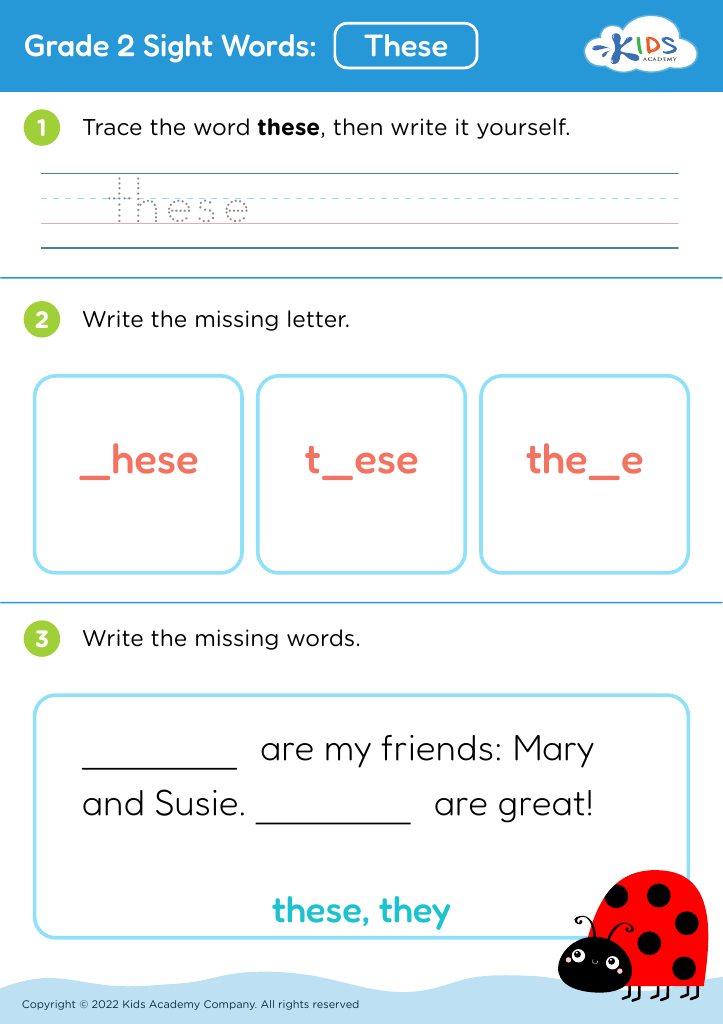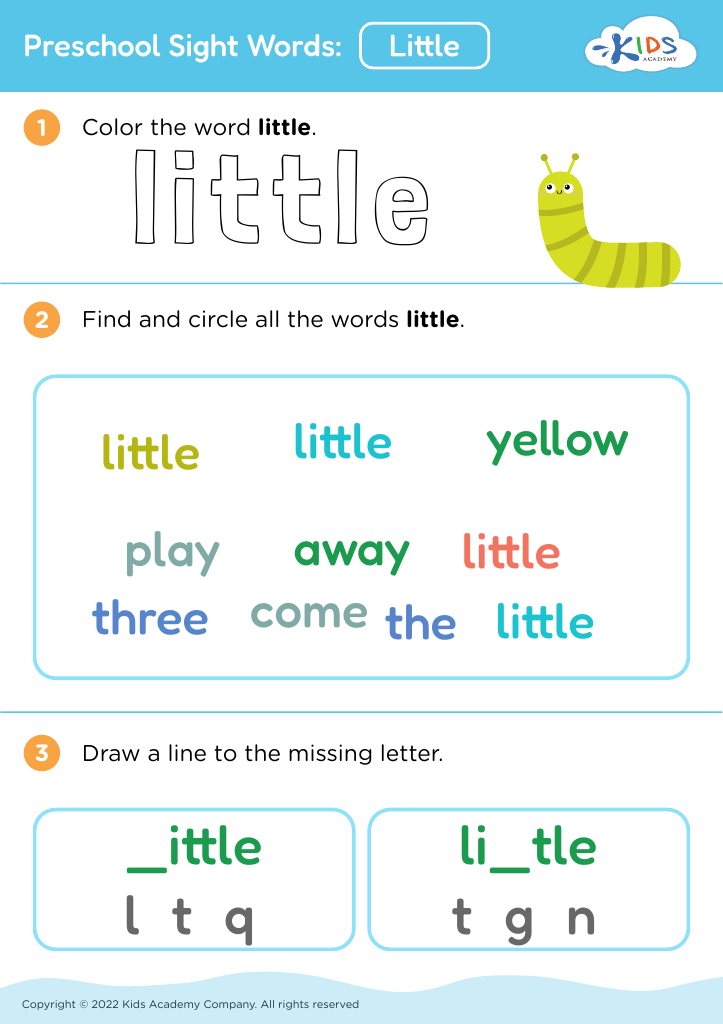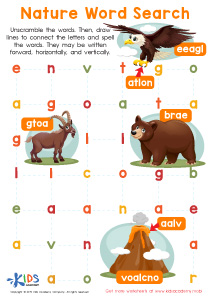Logical thinking Sight Words Worksheets for Ages 5-8
3 filtered results
-
From - To
Unlock the power of language and reasoning with our Logical Thinking Sight Words Worksheets for Ages 5-8! Designed to enhance early reading skills, these engaging worksheets combine sight word practice with logical reasoning exercises. Children will develop their language proficiency while sharpening their critical thinking abilities. Each colorful worksheet is tailored to be age-appropriate, making learning fun and interactive. Your young learners will explore words in context as they identify patterns, categorize sight words, and solve exciting puzzles. Perfect for classroom or home use, these worksheets nurture a love for reading while building essential thinking skills. Download now and encourage your child's learning journey!
Logical thinking and sight words are crucial elements in the early education of children ages 5-8. Parents and teachers should prioritize these skills to enhance children's overall literacy development. Logical thinking helps children make connections, solve problems, and understand the world around them. By developing this skill, children learn how to analyze information, think critically, and make informed decisions, which are key abilities in both academics and everyday life.
Sight words, on the other hand, are commonly used words that children are encouraged to recognize instantly without needing to sound them out. Mastery of sight words supports reading fluency, allowing young learners to focus on comprehension rather than decoding words. When children can effortlessly recognize sight words, they can engage more deeply with texts, which boosts confidence and enjoyment in reading.
Combining logical thinking with sight word recognition allows children to formulate ideas, compare concepts, and express themselves clearly through writing and speaking. Together, these skills create a solid foundation for future academic success, as they are vital for effective communication and critical analysis. For parents and teachers, investing in the development of these competencies ultimately empowers children to become competent, confident, and successful learners.





.jpg)













